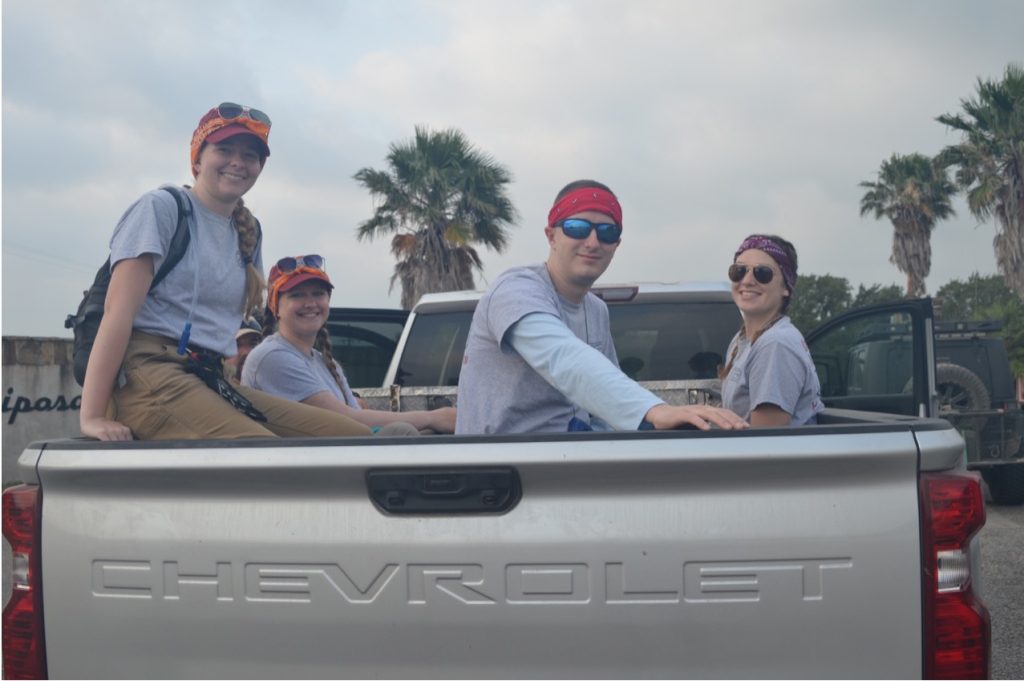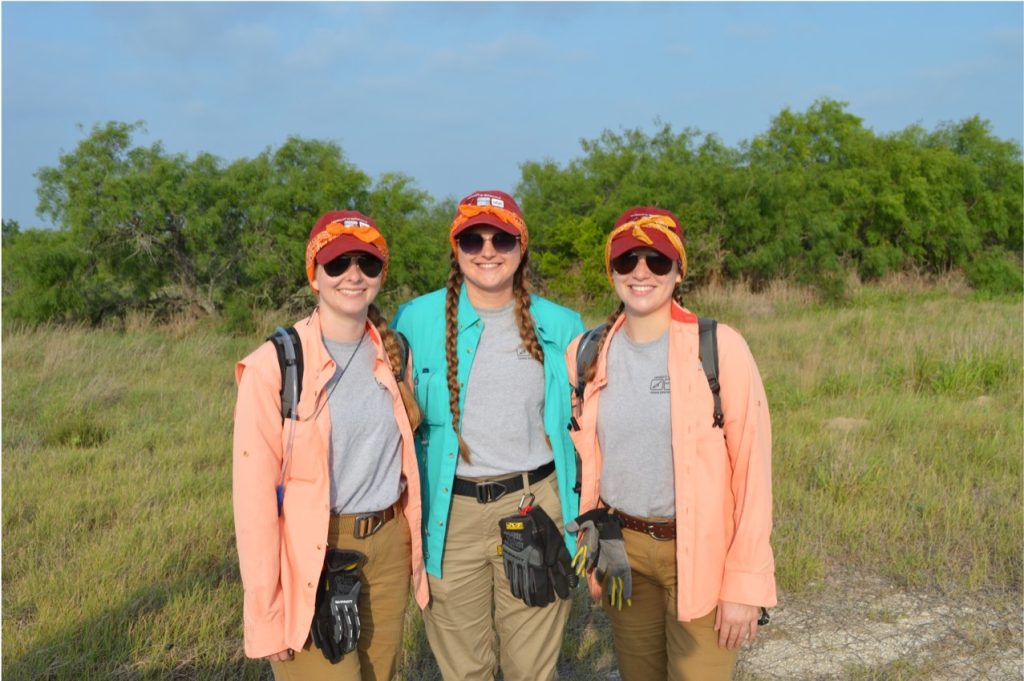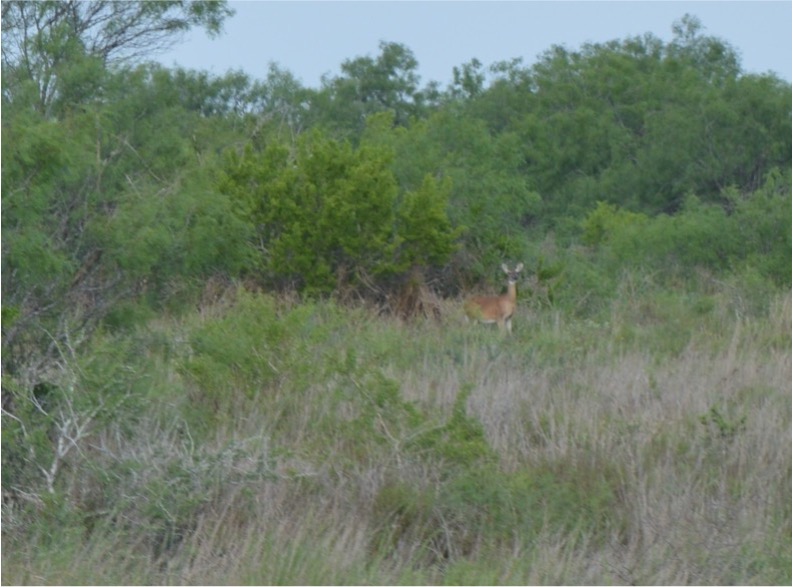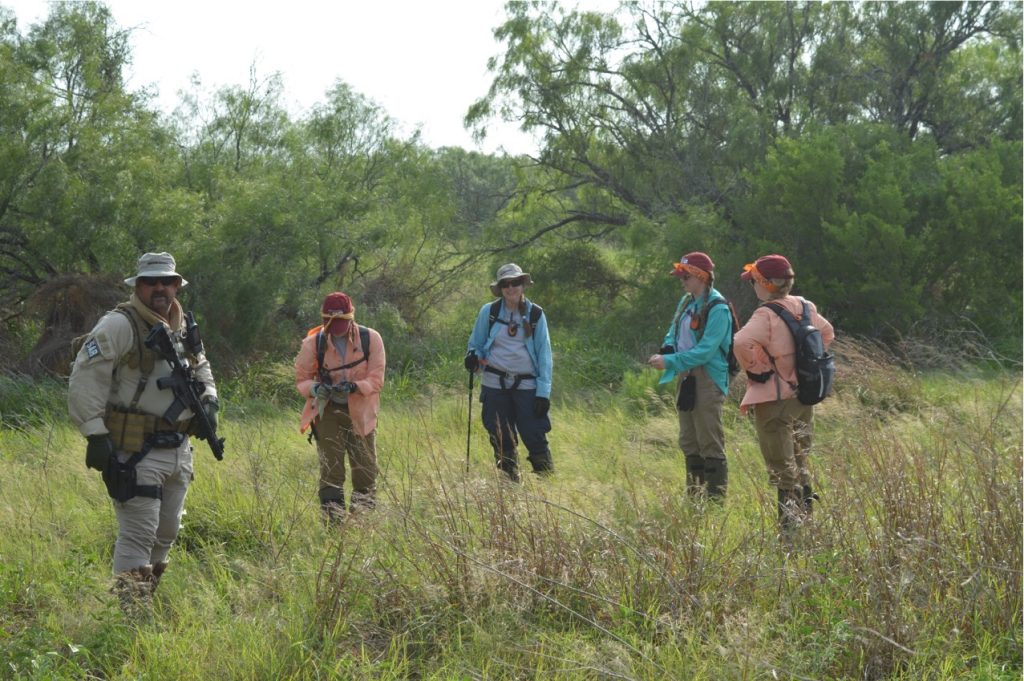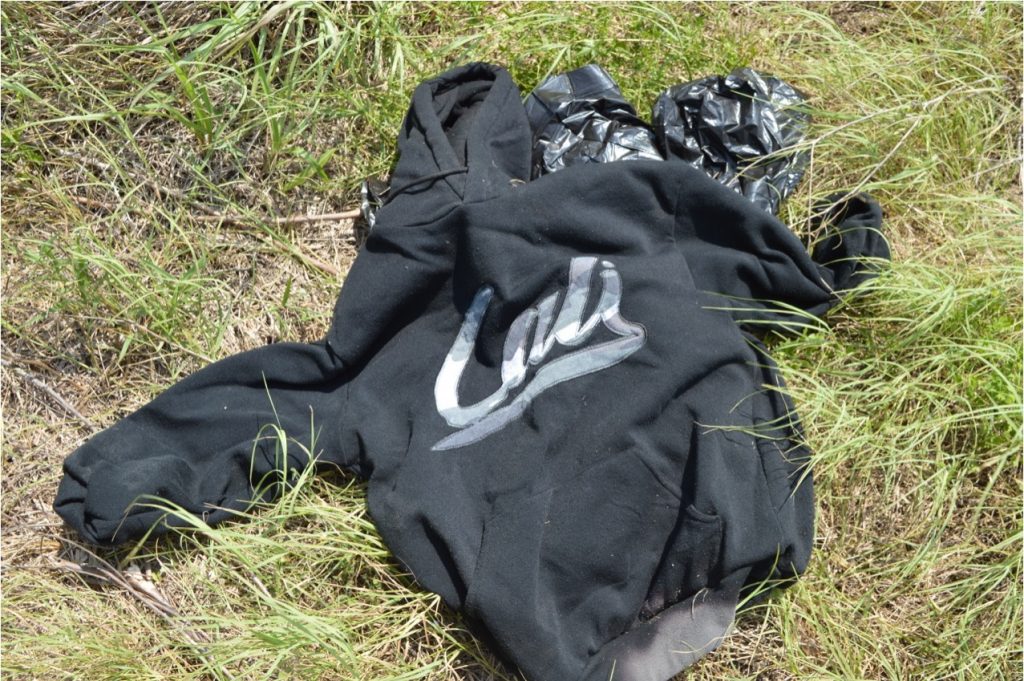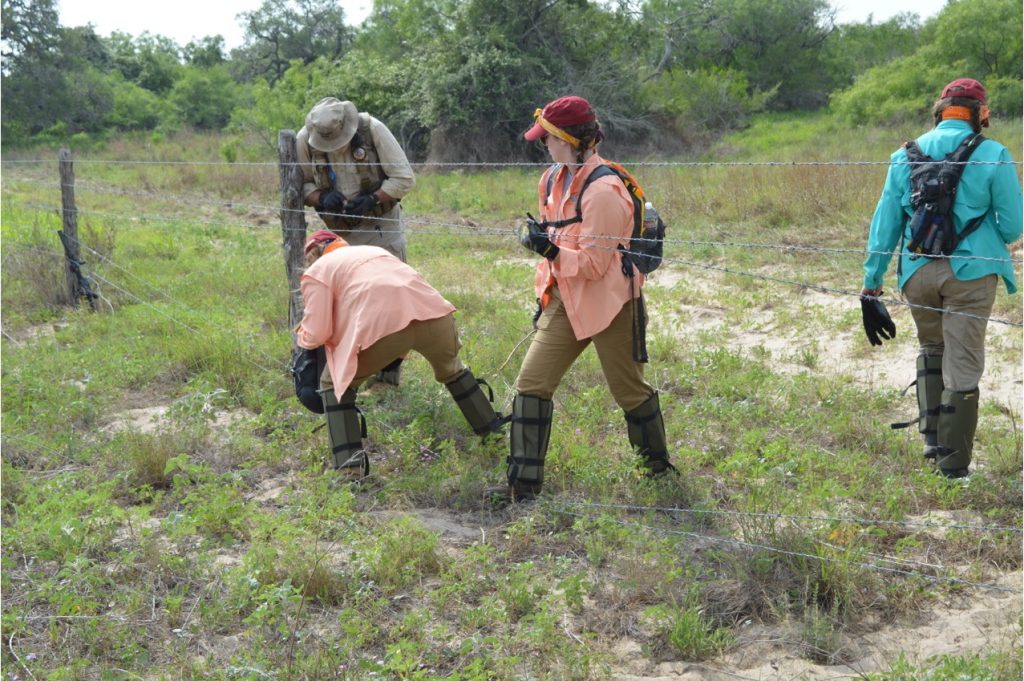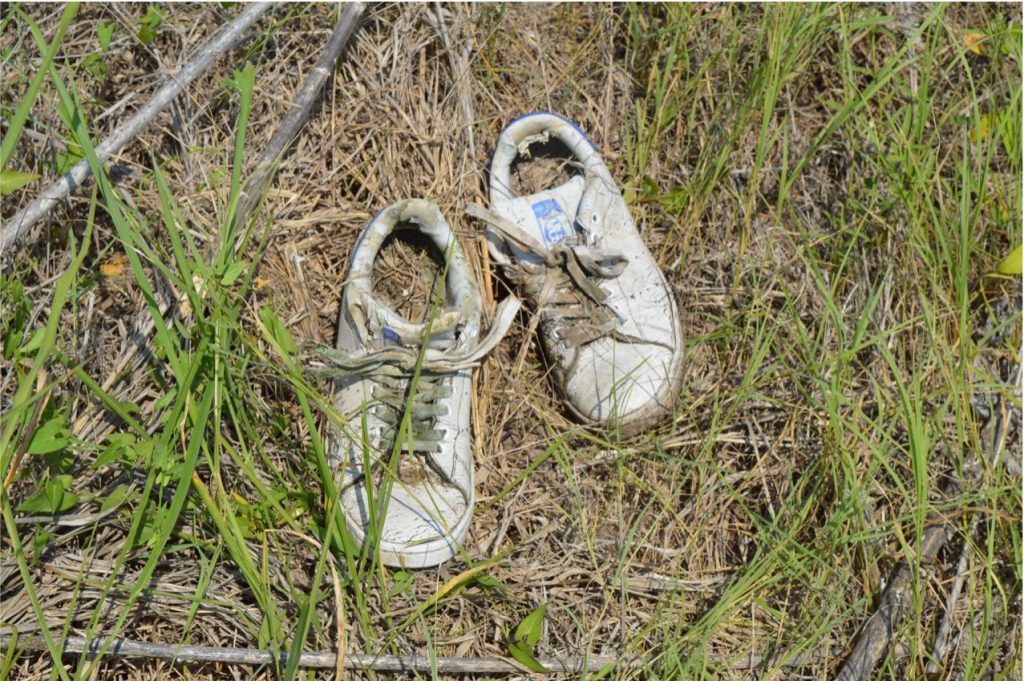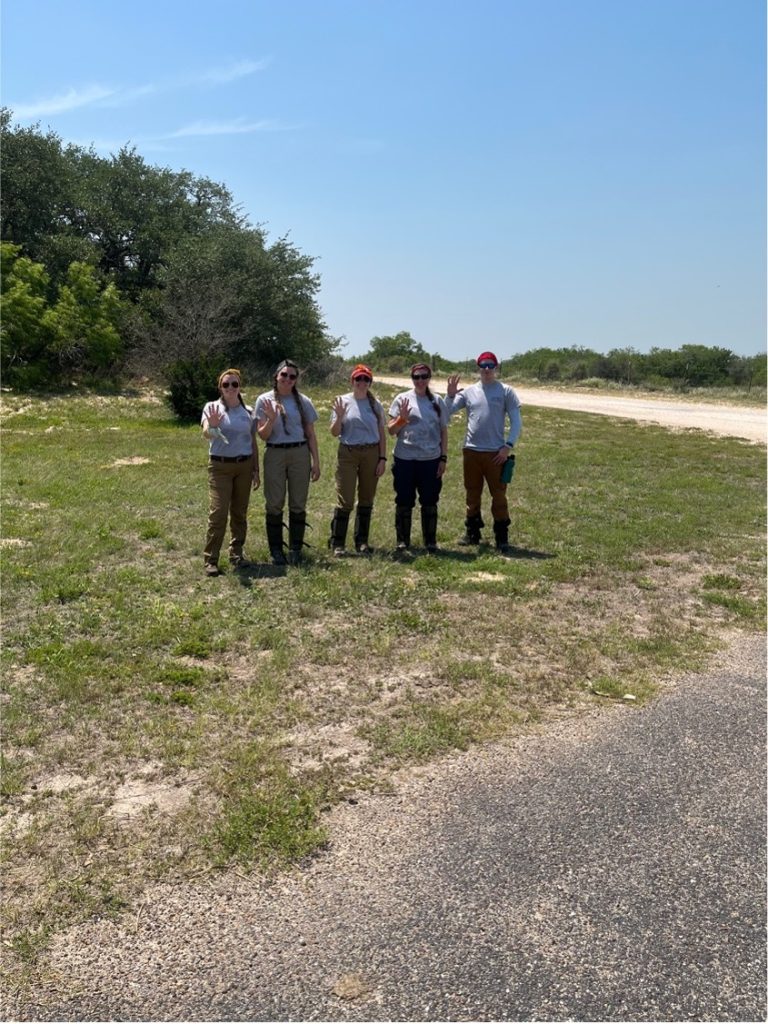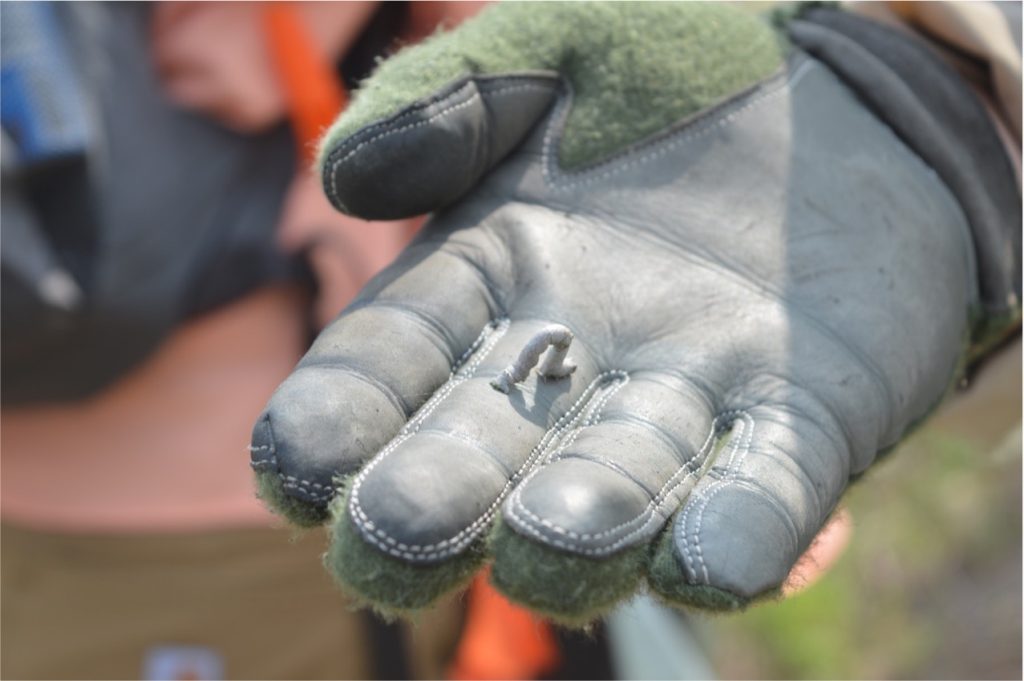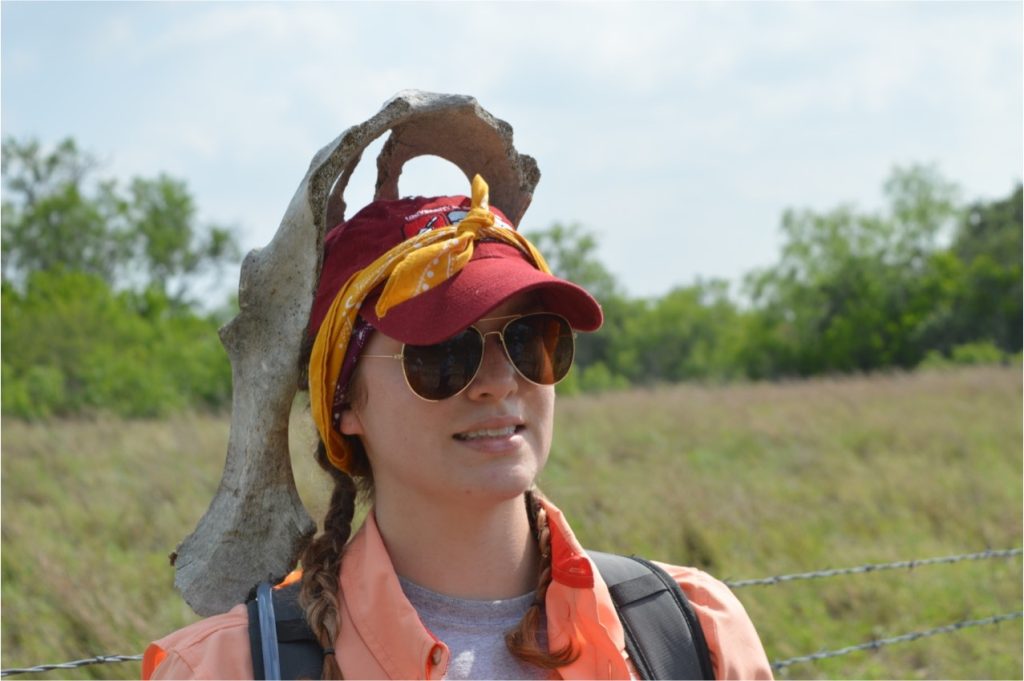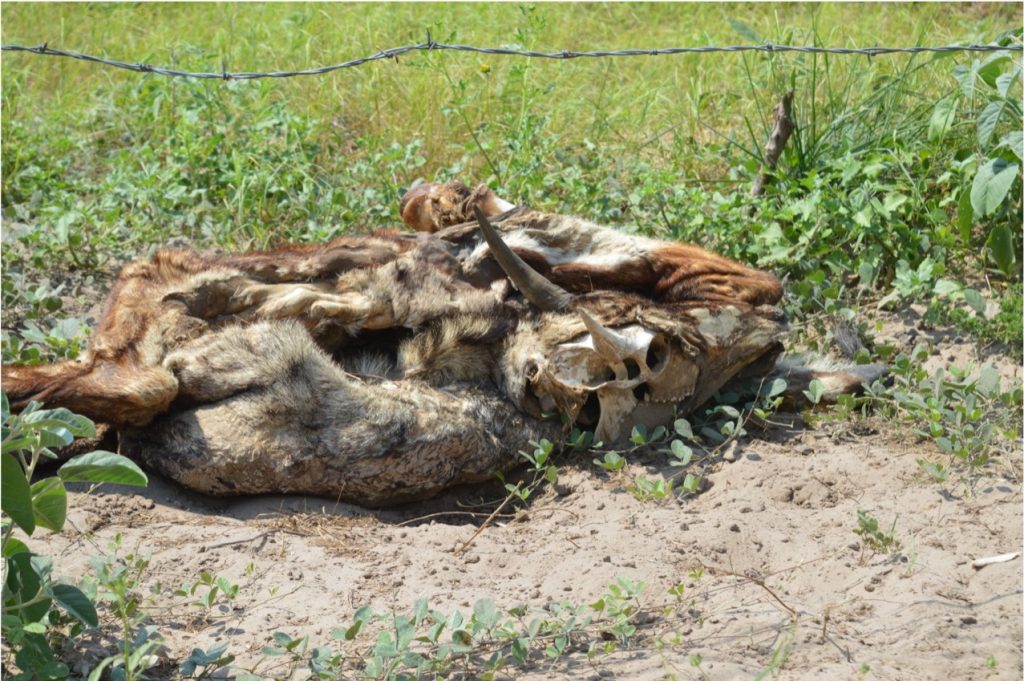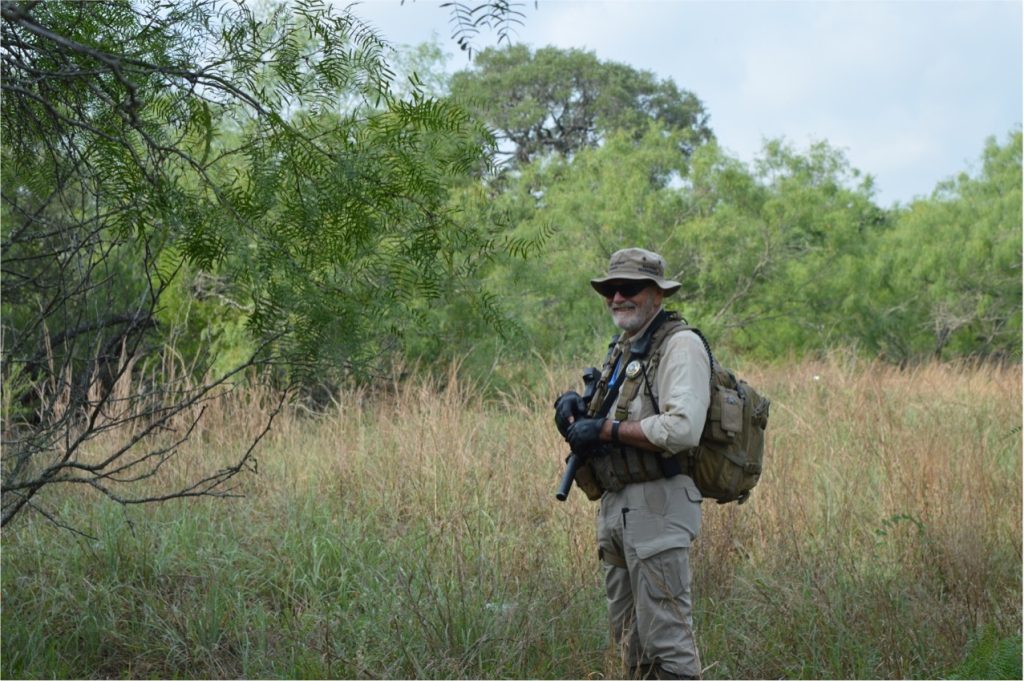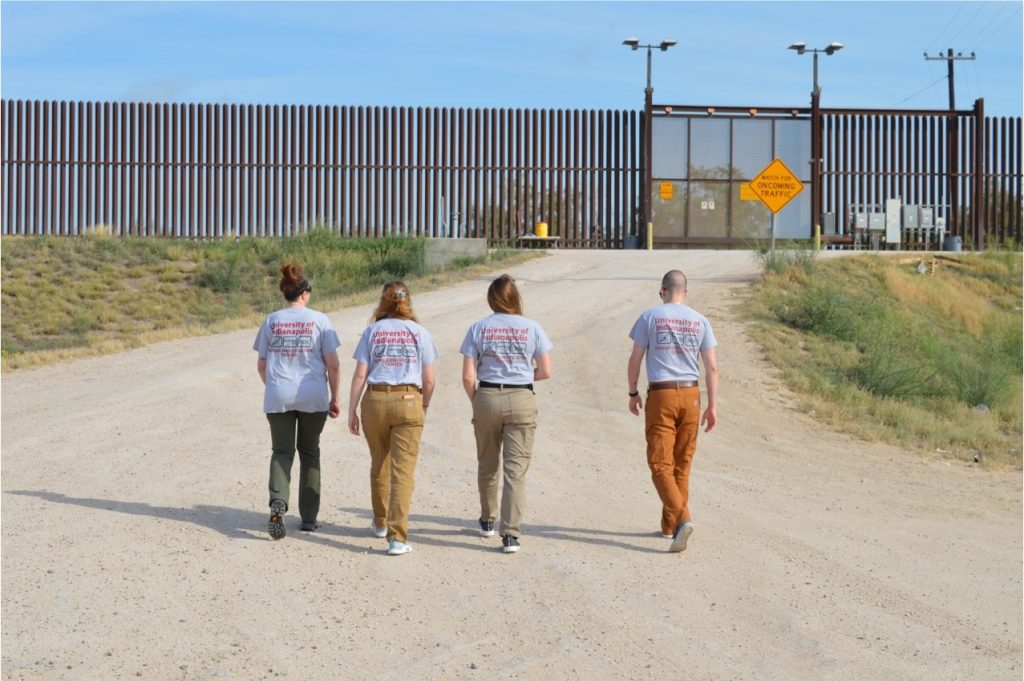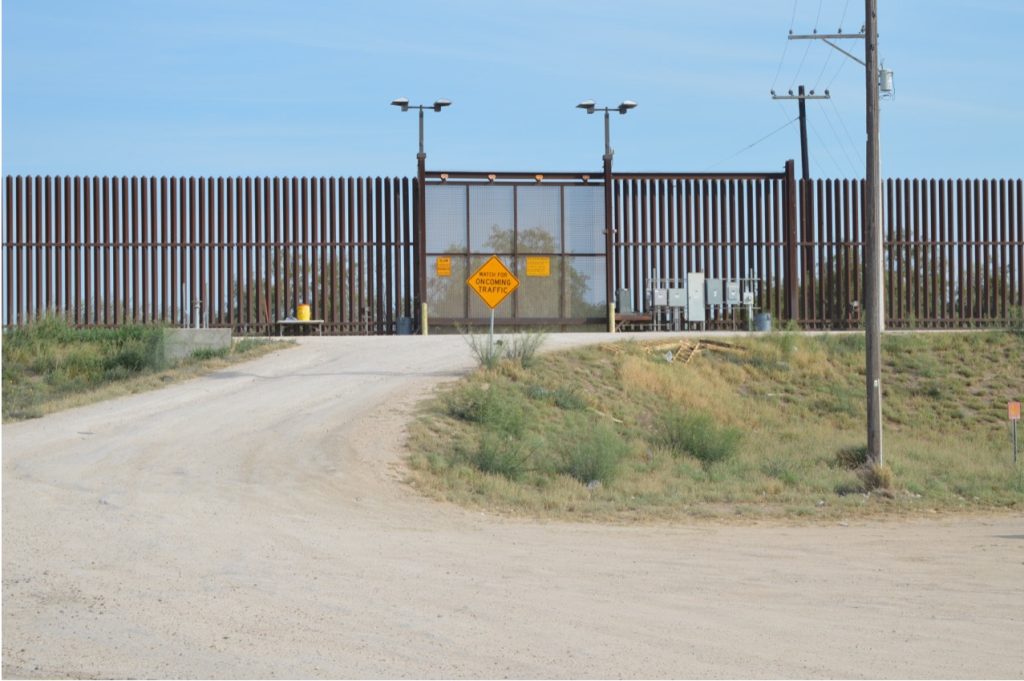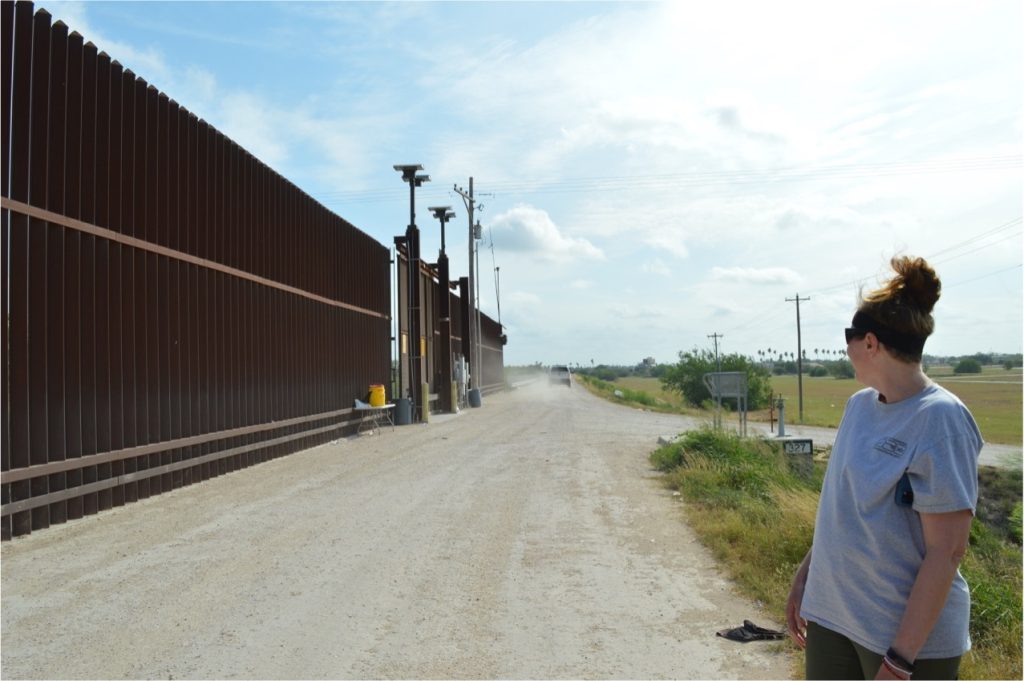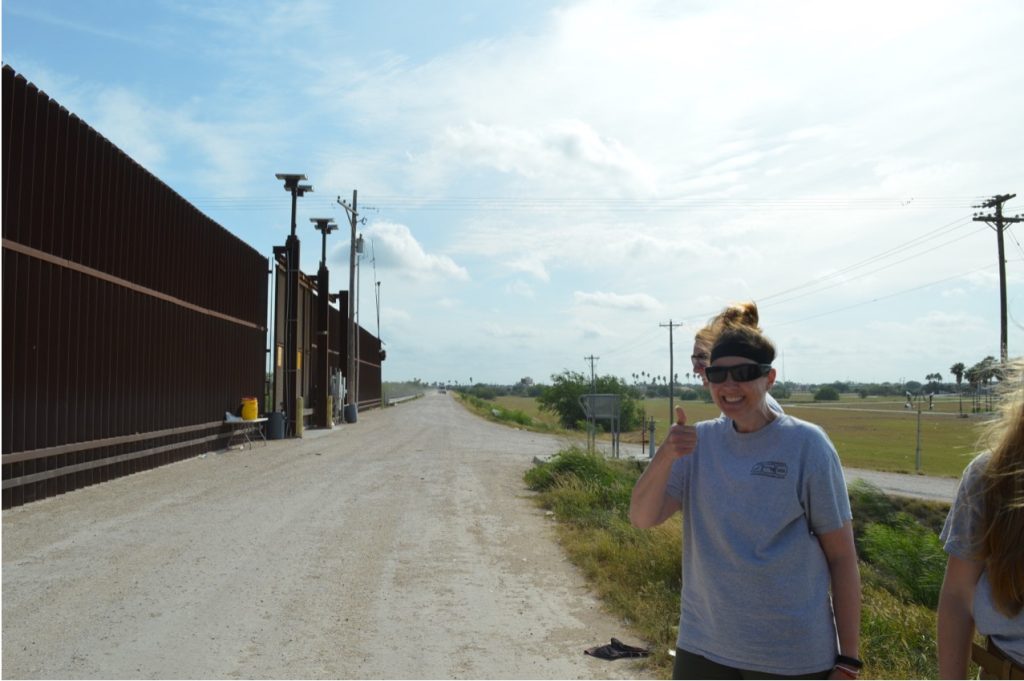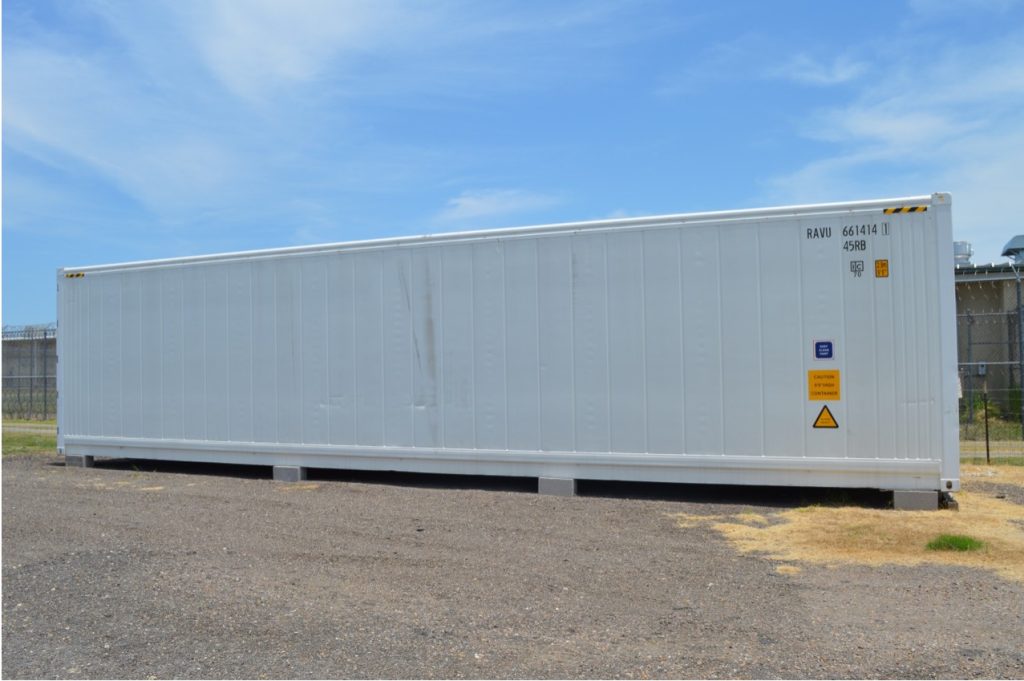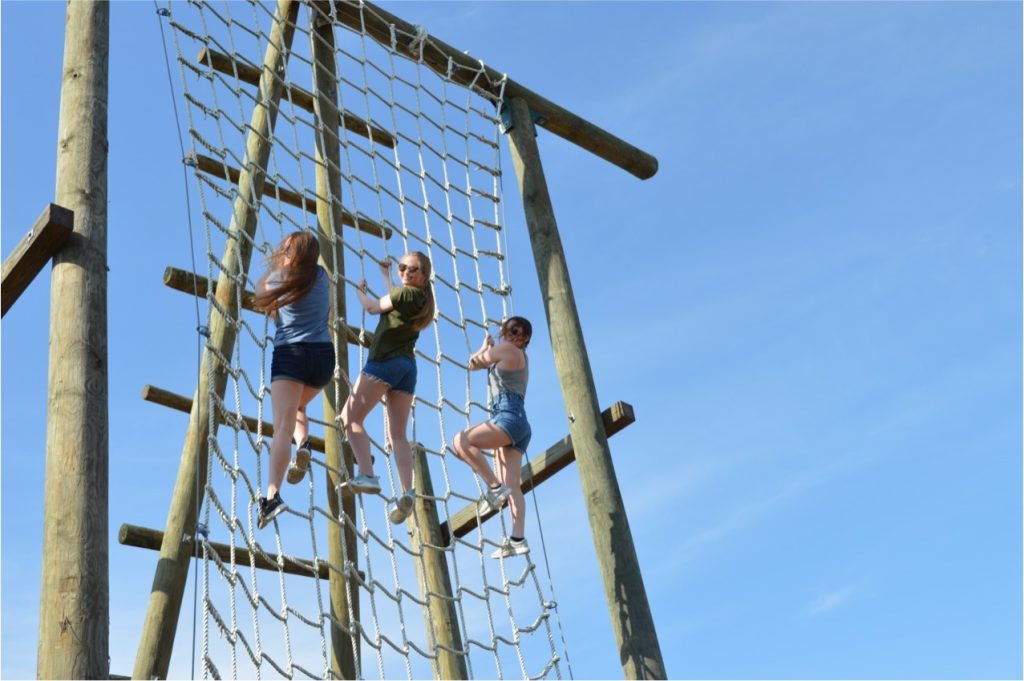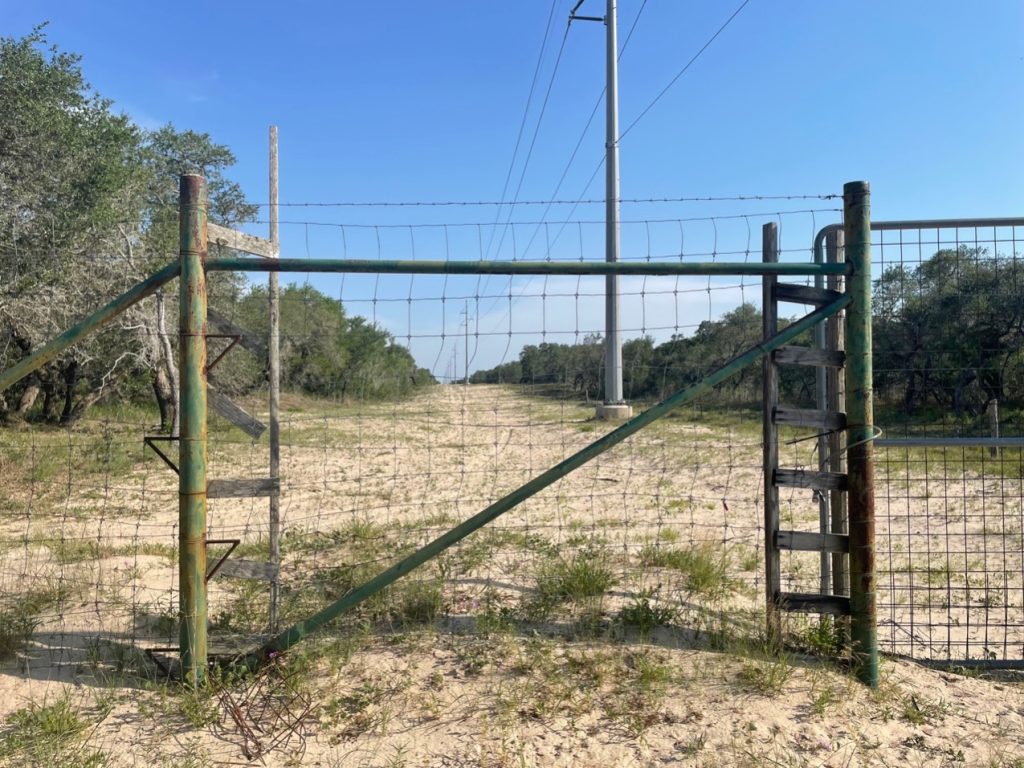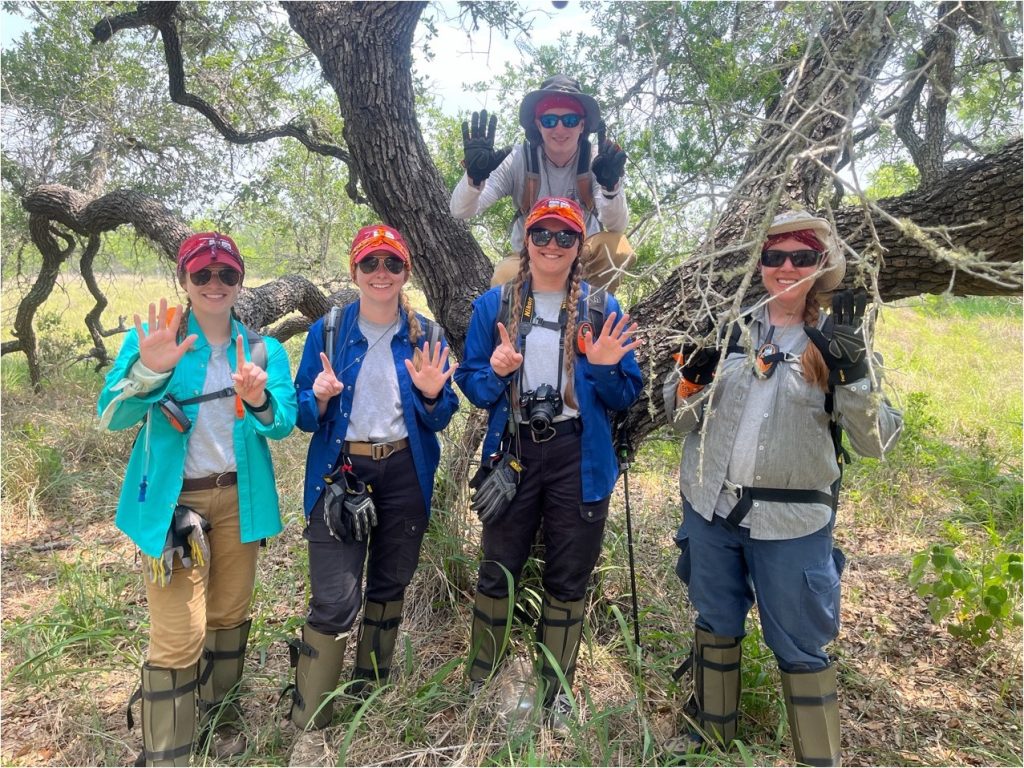
Day 6!
Today, waking up and getting around was bittersweet. Sure, we’re all tired but this has been such a great experience it’s hard for it to come to an end. We started our day at breakfast with Ray and Don. Ray couldn’t come out with us today so unfortunately, we had to say goodbye before heading out. We were very happy he was able to accompany us while here and appreciate his assistance!
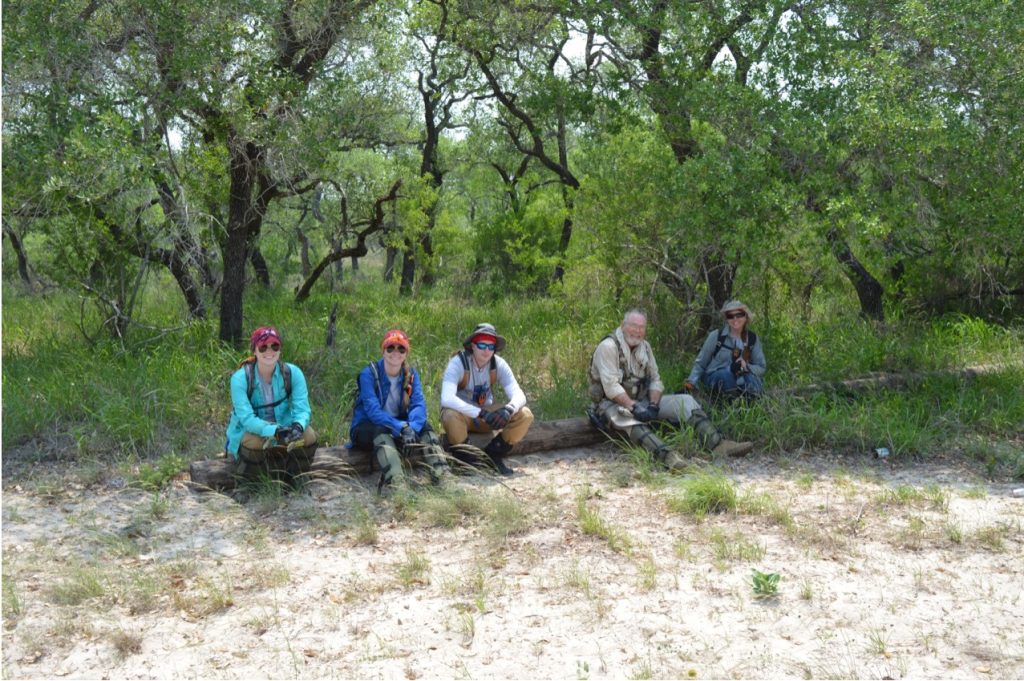
Izzy, Olivia, Austin, Don, and Dr. Latham on one of our breaks
We started where we left off yesterday, searching a portion of the ranch aiming to recover remains and material evidence important to the family members of a migrant who had gone missing. In this case, a cell phone. The cell phone may seem trivial to some, but could mean everything to his wife as it may contain photos that are important memories of her loved one. It is our job when conducting a recovery to work in the best interest of the decedent and their loved ones. This not only includes doing our due diligence to recover as many skeletal elements as possible but also extends to material objects like a cell phone.
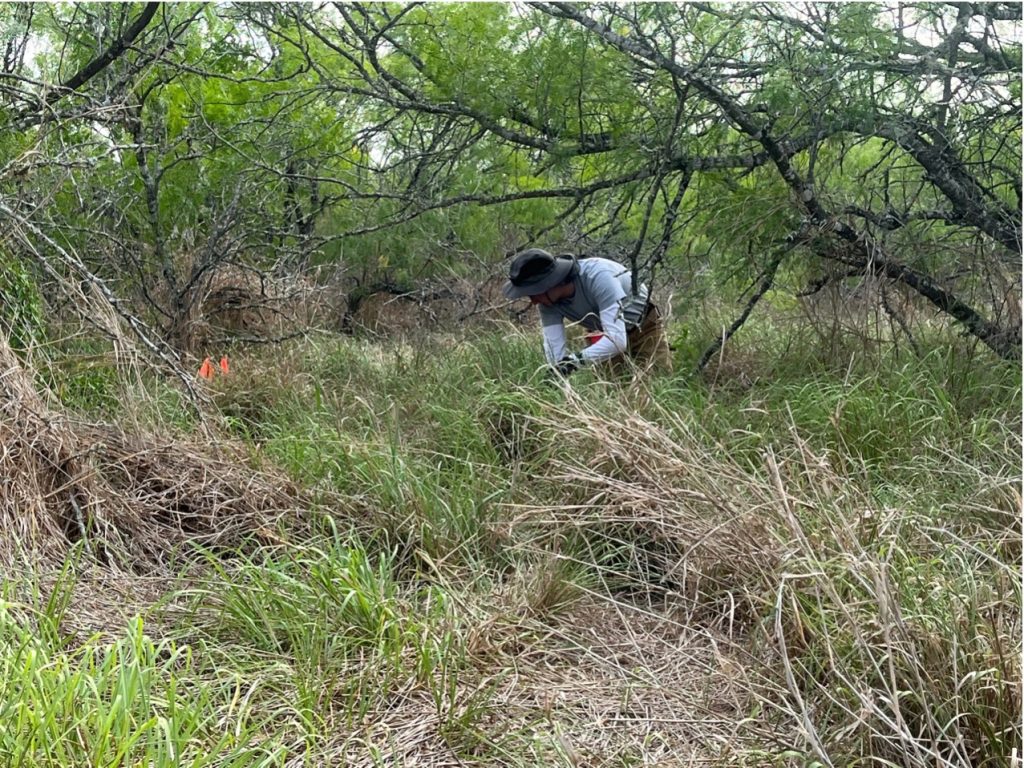
Austin searching an area of the brush
After a line search of the area of interest, we each took a small portion where we combed the ground more thoroughly. During this search, we flagged skeletal elements until the area was fully searched. We then set up a baseline in order to obtain measurements and map any evidentiary items. Simultaneously, photos were taken to further document any findings. Once all documentation is finished each item is able to be collected by the proper authorities. In this case, we were very fortunate to find the cell phone that the family members were hoping to get back (good eye Austin!).
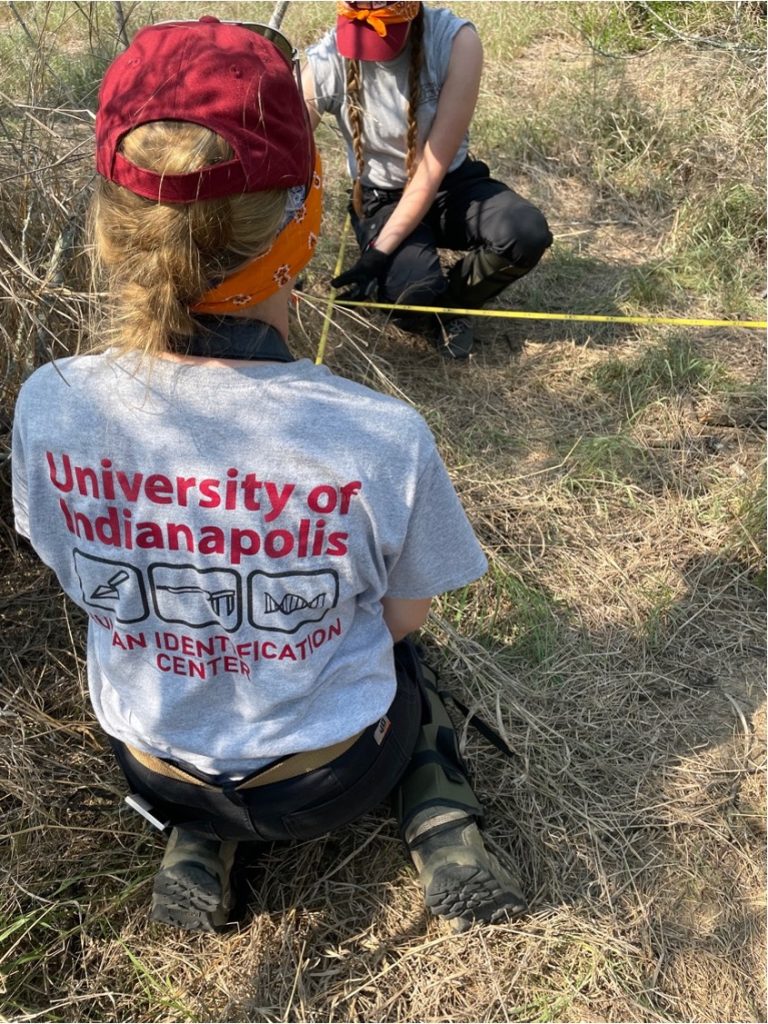
Olivia and I measuring an element of interest for mapping
Once we felt comfortable that we searched this area thoroughly, Don drove us to another location on the same ranch. This was based on a description of an area where an individual went missing and had yet to be searched. We continued with our typical process of a line search moving west up the south side of a dirt road and then pivoting across to the north side to move east. The brush here was slightly less dense but the foliage was, in the words of Olivia “angrier”, as the plants had more thorns than we had experienced previously. On this search there was some evidence of migrant activity in the form of water bottles, food packaging, and a sweatshirt but less than we had seen at other locations. Finding this material evidence is important information for Don to know as he proceeds with searches of the area in the future.
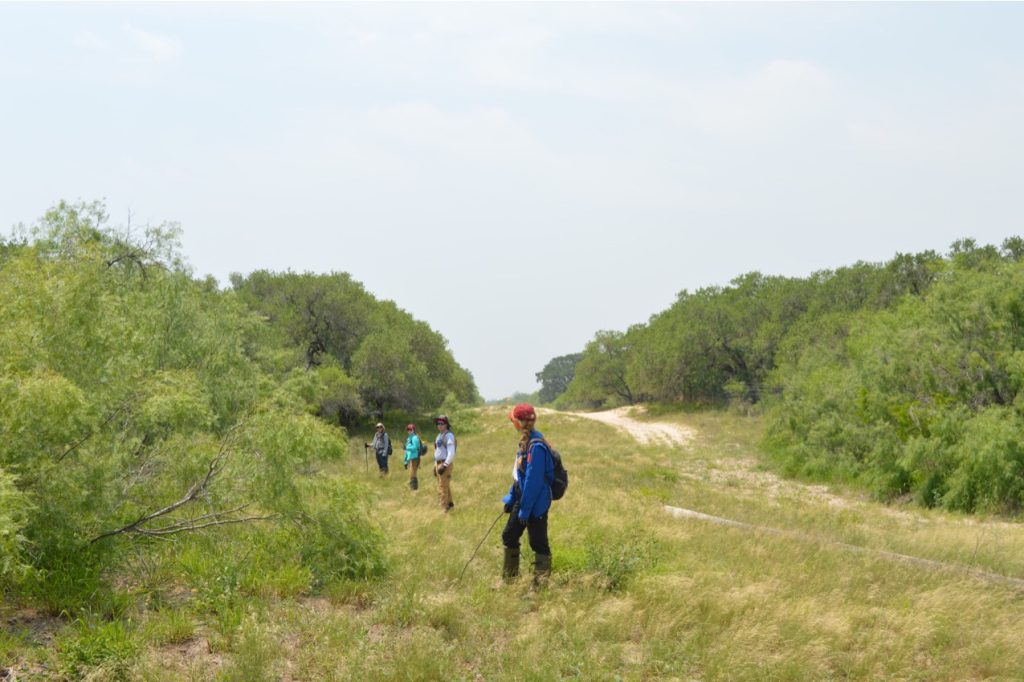
Line Searching
When our time in the field came to a close we all piled into the truck and headed back to town. Don gave us a bit of a tour. We got to go to the Brooks County Sheriff’s office where we got to meet Sherrif Benny Martinez. He has been very supportive of the work the Beyond Borders team does since the very beginning. We then wanted to end our week the way we started – with snow cones.
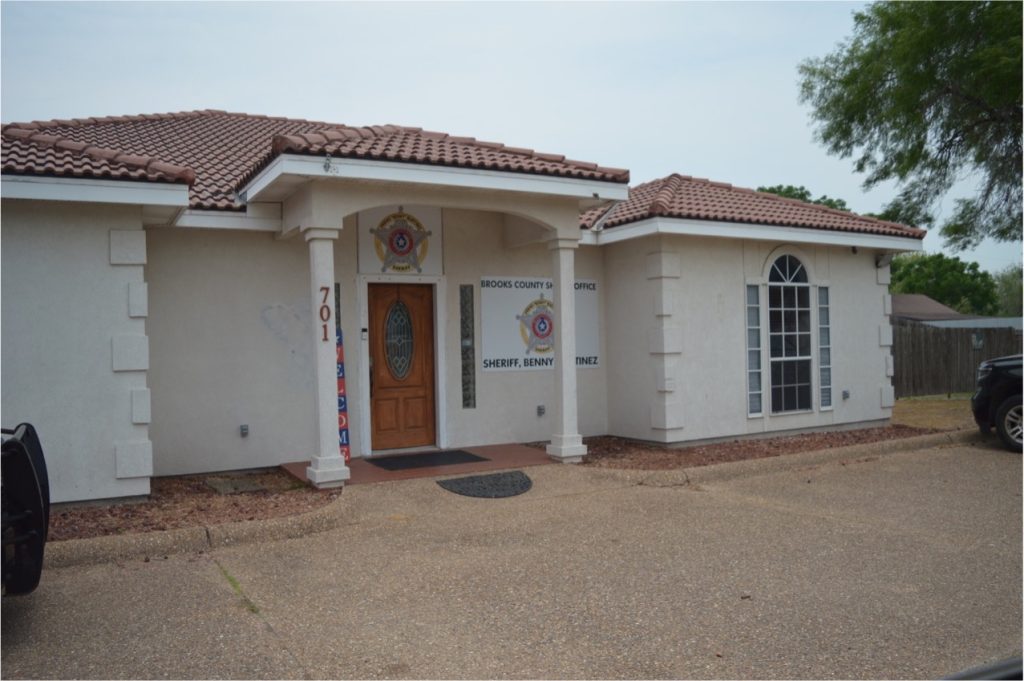
Brooks County Sherrif’s Office
After a quick break with showers and pool time, we headed to Jalisco for dinner with Don. It was just as good as before, and it was nice to be able to spend some more time with Don. From there we said our goodbyes and headed back to the hotel to pack. This trip has been extremely rewarding and I am very grateful to have been given the opportunity to experience it. I have learned many things that will stick with me for a very long time. As much as the Texas heat has tested us all, it is quite difficult to leave it behind.
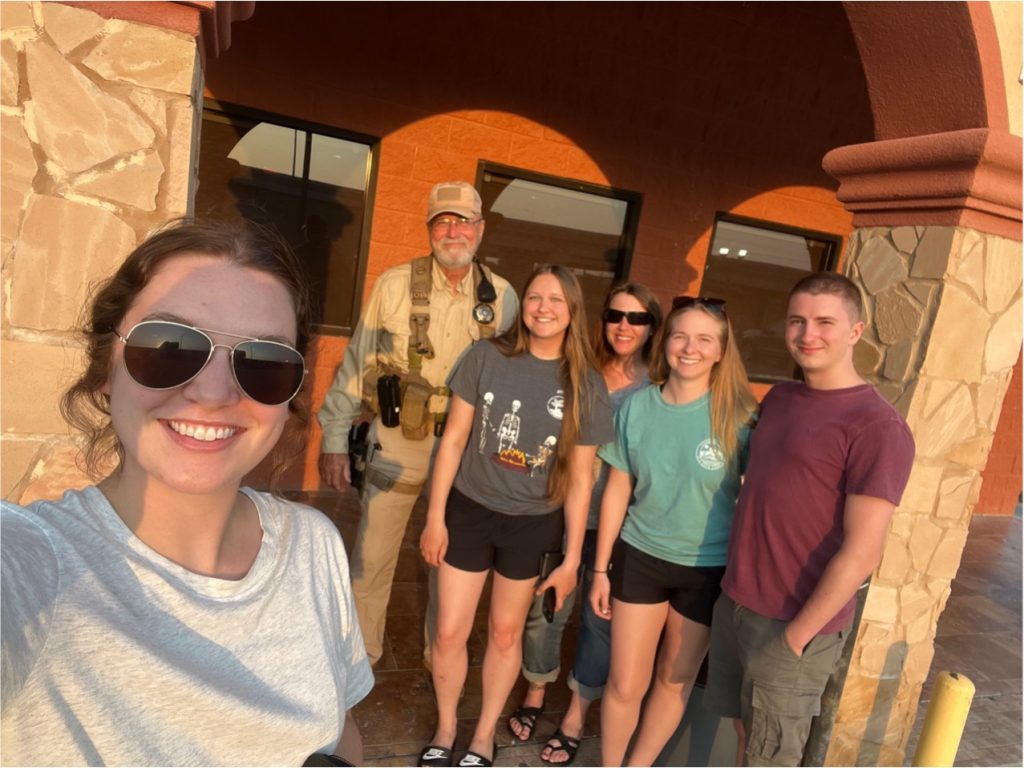
One last selfie
~ Jordan

Happy Place
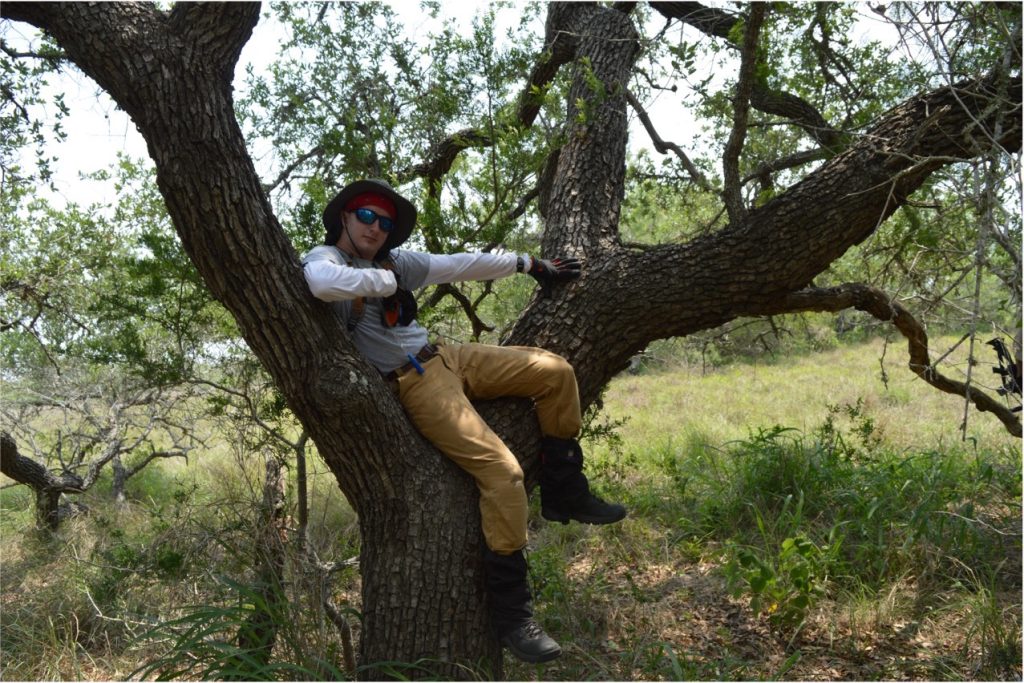
Austin in a tree
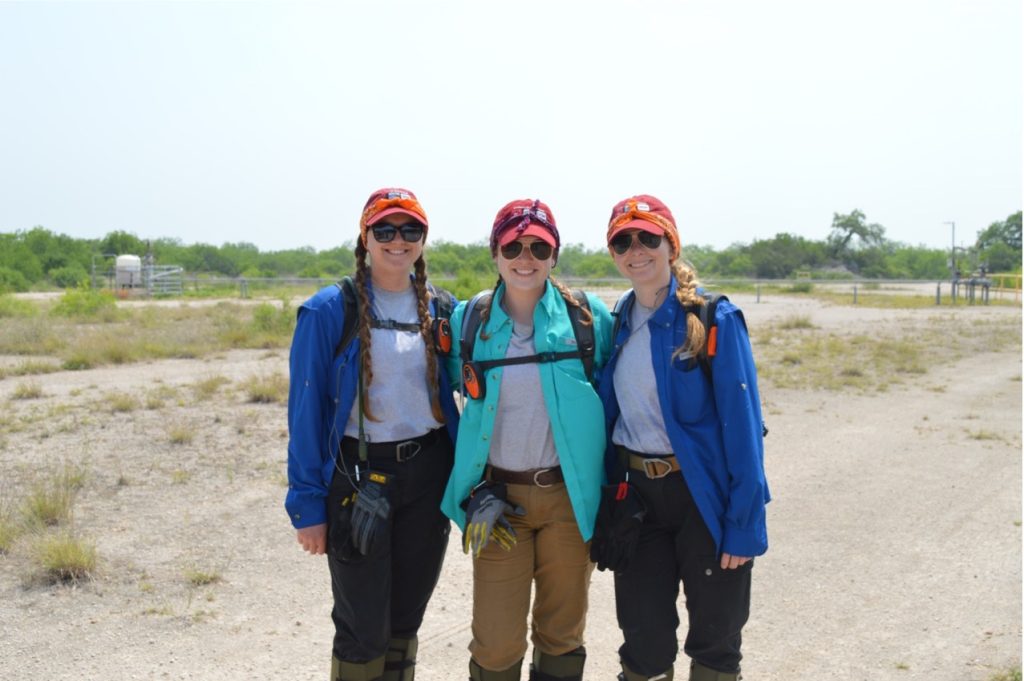
Izzy Sandwich
